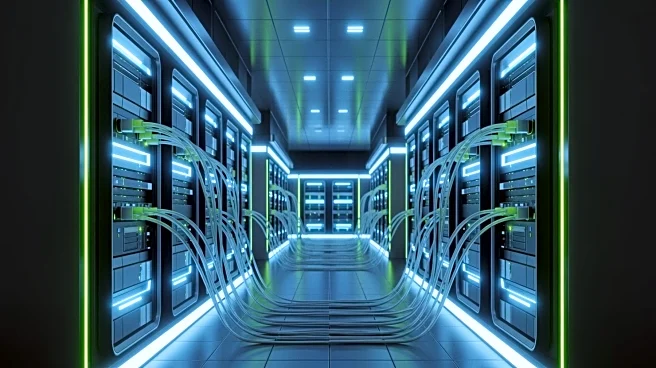What's Happening?
Federal agencies are increasingly adopting 5G technology to modernize their IT infrastructure and improve service delivery. While 4G LTE remains the dominant wireless communication standard, its limitations are becoming apparent as data demands grow.
5G offers enhanced performance, scalability, and security, supporting cloud adoption, edge computing, and more intelligent workflows. The U.S. Department of Defense has invested over $1.85 billion since 2020 in 5G development for smart warehousing, augmented reality training, and autonomous systems. This shift is crucial for meeting the evolving expectations of citizens and the federal workforce, who require sophisticated technology programs for efficient and secure operations.
Why It's Important?
The transition to 5G is significant for federal agencies as it addresses the challenges posed by aging infrastructure and resource constraints. 5G's ultra-low latency and improved coverage enable real-time decision-making and secure mobile logistics, which are essential for complex military and civilian missions. Enhanced security protocols in 5G, including stronger encryption and robust authentication, are critical as cybersecurity remains a top priority for federal CIOs. With more connected endpoints, agencies need airtight security to protect sensitive data. The adoption of 5G is not just a connectivity upgrade but a catalyst for smarter decision-making, efficient logistics, and enhanced cybersecurity.
What's Next?
As 5G infrastructure scales and devices evolve, its impact on federal operations will deepen. Agencies are expected to continue integrating 5G into their systems to support secure collaboration and access to data in challenging environments. The focus will be on building a mission-ready network that enhances communication and protection. With ongoing investments in 5G development, federal agencies are poised to leverage this technology for more efficient and responsive operations. The future of federal IT modernization will likely see increased reliance on 5G to meet the demands of a data-centric and security-focused environment.
Beyond the Headlines
The adoption of 5G in federal agencies highlights the broader trend of digital transformation in government operations. This shift has ethical and cultural implications, as it requires balancing technological advancement with privacy concerns and data protection. The move towards 5G also reflects a long-term shift in how government services are delivered, emphasizing the need for continuous innovation and adaptation to meet public expectations. As agencies navigate these changes, they must consider the legal and regulatory frameworks governing technology use and data security.
















